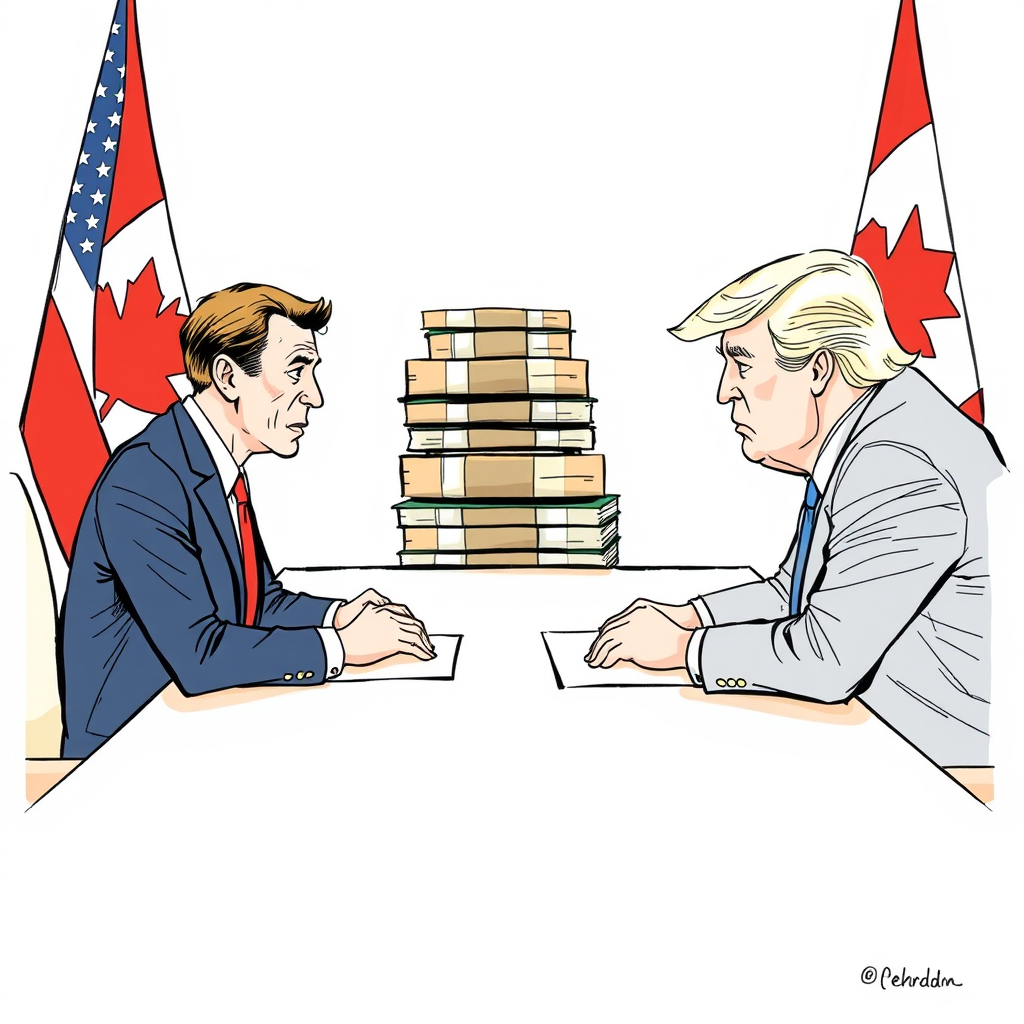Carney's Trump Visit: High Stakes, Huge Risks

Prime Minister Mark Carney’s upcoming meeting with President Donald Trump carries significant risk, prompting anxiety in Canada about a potential repeat of past diplomatic clashes. Trump’s track record of unconventional interactions with foreign leaders – most notably the highly publicized and uncomfortable exchange with Ukrainian President Volodymyr Zelensky – has put Carney in a precarious position. The meeting, scheduled for Tuesday, comes as Canada navigates strained trade relations and persistent, often unfounded, accusations from Trump regarding economic imbalances.
Trump has repeatedly suggested Canada is unfairly burdening the U.S., even floating the idea of annexation and referring to Prime Minister Carney as a “Governor.” These comments, coupled with the imposition of tariffs on Canadian exports, have fueled concerns about a potential escalation of tensions. While Carney aims to address these trade pressures and “get the best deal for Canada,” Trump himself appeared dismissive, questioning the purpose of the meeting and implying Canada is reliant on U.S. support.
Experts warn Carney faces a delicate balancing act. Canadians expect a firm defense of national sovereignty, but a public confrontation could prove counterproductive. The Zelensky encounter serves as a stark reminder of Trump’s willingness to use such meetings as opportunities to assert dominance. However, unlike Zelensky, Carney represents a long-standing ally, making a public rebuke potentially more damaging to the broader U.S.-Canada relationship.
Carney has signaled a willingness to stand firm, emphasizing a shift away from deeper integration with the U.S. and strengthening ties with European partners. He intends to address issues like tariffs on key exports – including vehicles, auto parts, steel, and aluminum – which threaten Canadian jobs and have prompted retaliatory measures.
The timing of the meeting is somewhat fortuitous for Carney, as his Liberal government currently enjoys a stable minority and doesn’t face immediate electoral pressure. This allows him to take calculated risks that might have been untenable before. However, the potential for a broader renegotiation of the U.S.-Mexico-Canada Agreement looms large, making this meeting a critical juncture for the continent’s economic future.
While Carney is managing expectations – stating “do not expect white smoke” – the primary goal appears to be avoiding public humiliation. Experts agree that navigating Trump’s unpredictable nature and prioritizing a dignified stance are paramount. The meeting isn’t simply about securing tariff rollbacks; it’s about preserving Canada’s sovereignty and preventing a further deterioration of a vital international partnership. It’s a high-stakes gamble, and the outcome will undoubtedly shape the future of U.S.-Canada relations for years to come.